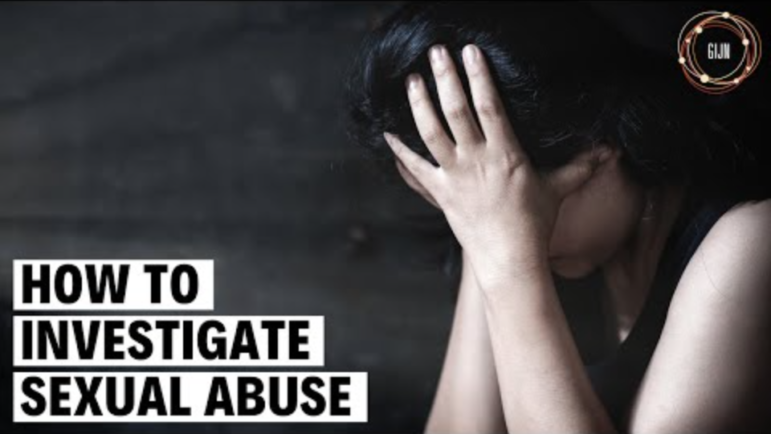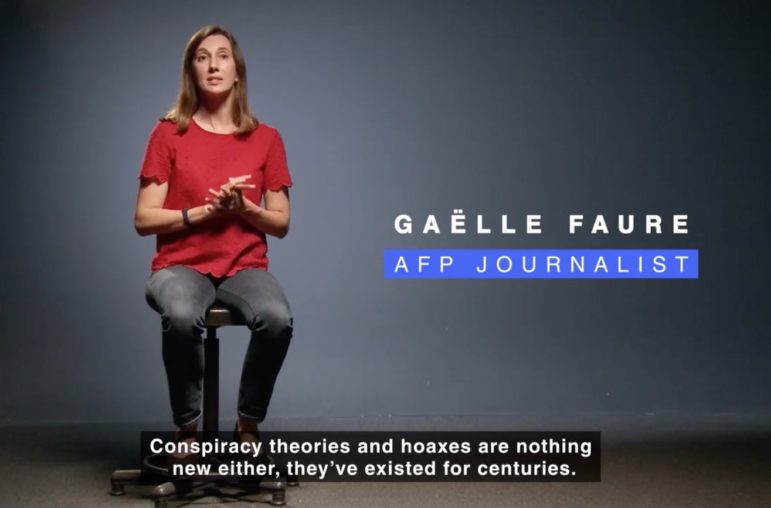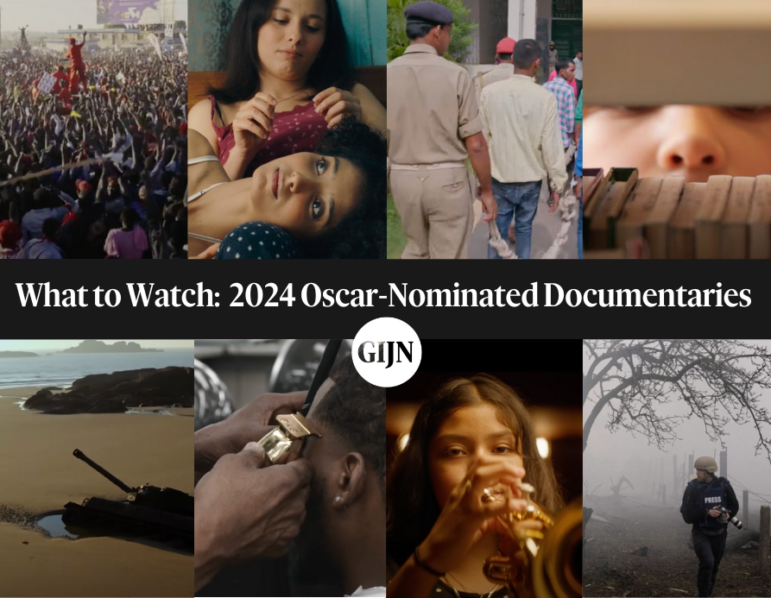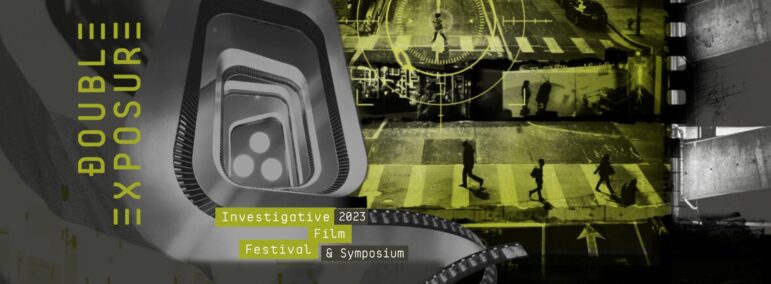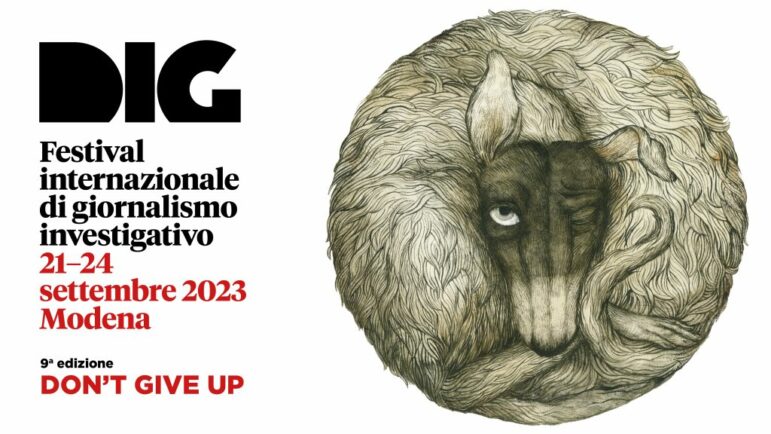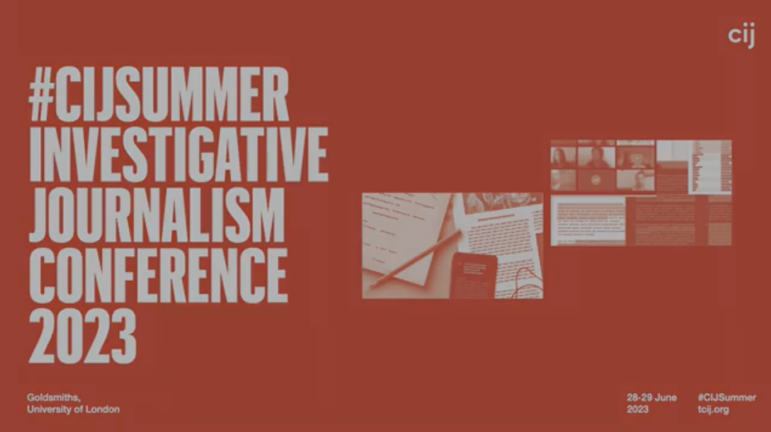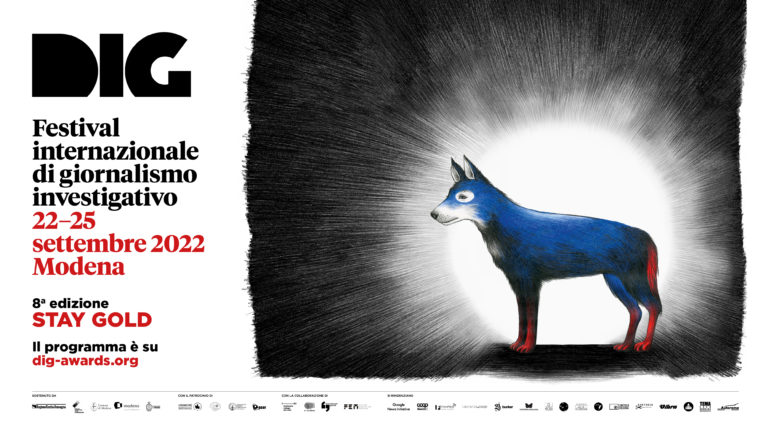

Image: Courtesy of DIG
2022 DIG Festival Awards: Projects on Private Militaries, Assassination, and a Dictatorship’s End
Read this article in
From a one-hour French documentary about the Russian Wagner group of mercenary fighters to a short film about the final, desperate phone calls of a Tunisian president facing an uprising, many of the winning entries from the 2022 DIG Festival focus on telling the stories of the powerful and what happens behind closed doors.
Held in the Italian city of Modena, the festival is an annual celebration of the world’s best investigative documentaries, video reportage, and podcasts. This year’s winners were selected from more than 400 global nominations.
DIG, which stands for Documentari Inchieste Gionalismi (Italian for Documentaries, Investigation, Journalism), is a nonprofit, GIJN-member organization that supports investigative journalism in Italy and around the world.
Two of the projects that made the final cut turned their investigative lens on Russian President Vladimir Putin and his regime. One digs into the Wagner group, a paramilitary organization whose existence has always been denied by the Russian state but whose fighters have been found engaged in conflicts around the world. Another project explores the 2015 assassination of Boris Nemtsov, then Russia’s most prominent opposition politician. Elsewhere, awards went to an investigative podcast exploring an unexplained death at sea, and a Watchdog award for open source investigative group Bellingcat.
The list of finalists can be seen here, while the winners are listed below.
Best Investigative Long: ‘Wagner, Putin’s Shadow Army’
Directed by Alexandra Jousset and Ksenia Bolchakova, this France TV documentary investigates the Wagner group, a controversial and secretive private military organization whose agents have appeared around the world. The team also looks at the relationship between the Wagner group and Yevgeny Prigozhin, a billionaire businessman and close ally of President Putin. Although Russia has always denied that the group has any connection with the state, the judges, led by the Danish filmmaker Mads Brügger, called the documentary a “compelling, strongly visual film that also details an opaque financial structure sustained by corporations and state complicity.” The panel also praised the team behind “an ambitious, complex and dangerous investigation” that followed the money across three continents.
Best Investigative Medium: ‘Nemtsov’s Shadow’
Directed by an investigative team made up of Christo Grozev (Bellingcat), Yordan Tsalov (BBC, Bellingcat), and Roman Dobrokhotov (The Insider), this documentary digs into one of the most shocking political assassinations in Vladimir Putin’s Russia. Boris Nemtsov, a fierce critic of Putin, was among the most prominent opposition figures in Russia when he was shot dead on a bridge near the Kremlin. Although five men were convicted for the 2015 murder, the team wanted to answer lingering questions about who ordered the killing by examining archival footage and interviewing Nemtsov’s old friends and associates, revealing that the politician was being trailed in the year before his death. Judges called the film a “timely investigation into the dark corners of the Putin regime.” Aliaume Leroy, one of the investigators on the team, said upon receiving the award: “We’d like to dedicate this film to the Russian people still fighting for a better Russia… those who, despite the risks, still go out and protest and keep making voices heard.”
Best Short: ‘The Dictator’s Last Calls’
Earlier this year, GIJN spoke to Emir Nader, the investigative producer-director behind this compelling film. Now, the documentary has won the DIG competition for the best investigative short film. This project is an animated retelling of the final hours of the former Tunisian President Zine El Abidine Ben Ali, whose 23-year-long dictatorship crumbled in 2011 when a wave of protests — that would eventually spiral outward into the Arab Spring — forced his resignation and exile to Saudi Arabia. The judges called the film — which features audio recordings of the former leader — “an intimate portrait of a dictator falling from grace.” They also hailed Nader’s use of audio forensics and animation, and the recounting of the challenges of verification told within the story.
Best Audio and Podcast: ‘In Dark Waters’
For years after the sinking of the Bugaled Breizh, a French fishing trawler, the families of the five sailors lost at sea were told that their loved ones had died in a simple fishing accident. But Adèle Humbert and Emilie Denêtre, the journalists behind this four-part investigative podcast, used innovative sound design — and, according to the judges, “great investigative work” — to find inconsistencies in the testimony of an expert whose account led to the case being closed. The DIG jury said they “unanimously” appreciated the production, live takes, and soundtrack. The director, Humbert, said the team “thought it important to shed light on the story and make sure the victims are not forgotten.”
Best Reportage Long: ‘Erasmus in Gaza’
More reportage than documentary, this film follows a young Italian medical student, Riccardo Corradini, who decides to spend his study abroad period — known in European universities as the Erasmus program — in Gaza. “A rather unusual Erasmus,” one of his friends says at the start of the film, in what would turn out to be a tragi-comic understatement. “I was so wrong to think that for me it would be easier,” Corradini tells directors Matteo Delbò and Chiara Avesani, while in another scene, dressed in a white medical coat, injured patients, young men, children, and the elderly, are brought to him for care. Revealing the shelling and violence that are a feature of life in Gaza, Corradini speaks of the difficulties of finding yourself “up against something that is much bigger than you are.” The jury called the film an “unexpected combination of a coming-of-age story and a nuanced depiction of everyday life in Gaza.”
Best Reportage Medium: ‘Galaxionauts’
Another French-language winner was this reported feature film by Anna Roch and Stéphane Rybojad for ARTE. It tells the story of Jean-Patrice Keka, an engineer from the Democratic Republic of Congo known as the African Einstein, and his mission to send a rocket into orbit from his homeland. But the country has never had a space program, and with poverty levels high, the government has other, more pressing, priorities. While the filmmakers concede this is something of a “crazy project,” the film shows how Keka will adapt anything — homemade fuel, electronic landfill rubbish, and powdered milk cans — to build his device. The judges said the film “focuses on hope, community and the capacity to dream,” themes that can win even “at a time when much reporting is focused on conflict and oppression.”
Watchdog Award 2022: Bellingcat
This award, which is decided by the DIG board, went to the open source investigative team at Bellingcat, a GIJN-member organization, “for expanding the boundaries of investigative journalism, strengthening it with new practices, languages, and technologies.” The DIG board also celebrated how the team’s work in places like Russia, Ukraine, and Syria is “among the most effective in proving the existence of events that would otherwise go unnoticed or untold.” Aiganysh Aidarbekova, a Kyrgyzstan-based researcher/data-trainer for Bellingcat, spoke of how the team is also prioritizing digital capture for evidence-based investigative journalism. “The danger of data is that the best digital evidence of a crime disappears quickly. Our main goal is to capture this data before this happens,” she said.
Editor’s note: Two members of GIJN’s staff — Program Director Anne Koch and Deputy Director Gabriela Manuli — were among the DIG jury.
Additional Resources
5 Must-See Films About Investigative Journalism from 2022
DIG Festival Honors Investigative Films That Exposed Scandals
What to Watch: Oscar-Nominated Feature Documentaries
 Laura Dixon joined GIJN as an associate editor after four years reporting from Colombia and freelance stints in Paris and Austin, Texas. Her work on Colombia’s conflict with FARC guerrillas and the Venezuelan migration crisis was published by The Times, Washington Post, The Atlantic and others
Laura Dixon joined GIJN as an associate editor after four years reporting from Colombia and freelance stints in Paris and Austin, Texas. Her work on Colombia’s conflict with FARC guerrillas and the Venezuelan migration crisis was published by The Times, Washington Post, The Atlantic and others
 Holly Pate is GIJN’s social media and engagement editor. A journalist and social media professional, she has worked with The New York Times and The Capital News Service, and most recently served as social media and outreach director of The Outlaw Ocean Project, a nonprofit journalism project.
Holly Pate is GIJN’s social media and engagement editor. A journalist and social media professional, she has worked with The New York Times and The Capital News Service, and most recently served as social media and outreach director of The Outlaw Ocean Project, a nonprofit journalism project.

